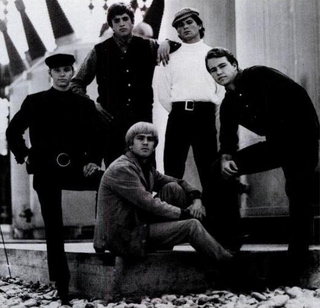
The Electric Prunes are an American psychedelic rock band, formed in Los Angeles, California, in 1965. Much of the band's music was, as music historian Richie Unterberger described it, possessed of "an eerie and sometimes anguished ambiance." Their most successful material was by songwriters Annette Tucker and Nancie Mantz, though the group also penned their own songs. Incorporating psychedelia and elements of embryonic electronic rock, the band's sound was marked by innovative recording techniques with fuzz-toned guitars and oscillating sound effects. In addition, guitarist Ken Williams' and singer James Lowe's concept of "free-form garage music" provided the band with a richer sonic palette and exploratory lyrical structure than many of their contemporaries.
Folk rock is a genre of rock music with heavy influences from English folk and American folk music. Combining the elements of folk and rock music, it arose in the United States, Canada, and the United Kingdom in the mid-1960s. In the U.S., folk rock emerged from the folk music revival. Performers such as Bob Dylan and the Byrds—several of whose members had earlier played in folk ensembles—attempted to blend the sounds of rock with their pre-existing folk repertoire, adopting the use of electric instrumentation and drums in a way previously discouraged in the U.S. folk community. The term "folk rock" was initially used in the U.S. music press in June 1965 to describe the Byrds' music.

The Lovin' Spoonful is an American folk rock band formed in Greenwich Village, New York City, in 1964. The band was among the most popular groups in the United States for a short period in the mid-1960s and their music and image influenced many of the contemporary rock acts of their era. Beginning in July 1965 with their debut single "Do You Believe in Magic", the band had seven consecutive singles reach the Top Ten of the U.S. charts in the eighteen months that followed, including the number two hits "Daydream" and "Did You Ever Have to Make Up Your Mind?" and the chart-topping "Summer in the City".
"Mr. Tambourine Man" is a song written by Bob Dylan, released as the first track of the acoustic side of his March 1965 album Bringing It All Back Home. The song's popularity led to Dylan recording it live many times, and it has been included in multiple compilation albums. It has been translated into other languages and has been used or referenced in television shows, films, and books.

The Music Machine was an American rock band formed in Los Angeles, California in 1966. Fronted by chief songwriter and lead vocalist Sean Bonniwell, the band cultivated a characteristically dark and rebellious image reflected in an untamed musical approach. Sometimes it made use of distorted guitar lines and hallucinogenic organ parts, punctuated by Bonniwell's distinctively throaty vocals. Although they managed to attain national chart success only briefly with two singles, the Music Machine is today considered by many critics to be one of the groundbreaking acts of the 1960s. Their style is now recognized as a pioneering force in proto-punk; yet within a relatively short period of time, they began to employ more complex lyrical and instrumental arrangements that went beyond the typical garage band format.
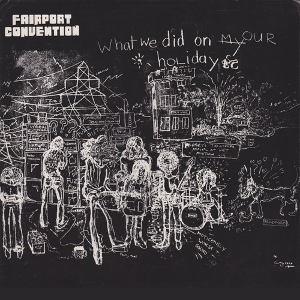
What We Did on Our Holidays is the second album by British band Fairport Convention, released in 1969. It was their first album to feature singer-songwriter Sandy Denny. The album also showed a move towards the folk rock for which the band became noted, including tracks later to become perennial favourites such as "Fotheringay" and the song traditionally used to close live concerts, "Meet on the Ledge".
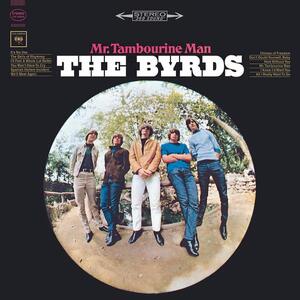
Mr. Tambourine Man is the debut studio album by the American rock band the Byrds and was released on June 21, 1965, by Columbia Records. The album is characterized by the Byrds' signature sound of Jim McGuinn's 12-string Rickenbacker guitar and the band's complex harmony singing. The material on the album mostly consists of cover versions of folk songs, primarily composed by Bob Dylan, and originals written or co-written by singer Gene Clark. Along with the Dylan-penned single of the same name, Mr. Tambourine Man established the band as an internationally successful act and is widely regarded by critics as representing the first effective American challenge to the chart dominance of the Beatles and other British Invasion bands during the mid-1960s.
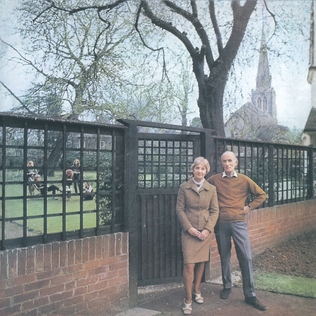
Unhalfbricking is the third album by the British folk rock band Fairport Convention and their second album released in 1969. It is seen as a transitional album in their history and marked a further musical move away from American influences towards more traditional English folk songs that had begun on their previous album, What We Did on Our Holidays and reached its peak on the follow-up, Liege & Lief, released later the same year.

Jefferson Airplane Takes Off is the debut studio album by the American rock band Jefferson Airplane, released on 15 August 1966 by RCA Victor. The personnel differs from the later "classic" lineup: Signe Toly Anderson was the female vocalist and Skip Spence played drums. Both soon left the group—Spence in May 1966, Anderson in October—and were replaced by Spencer Dryden and Grace Slick, respectively.
Americana is an amalgam of American music formed by the confluence of the shared and varied traditions that make up the musical ethos of the United States, specifically those sounds that are emerged from the Southern United States such as folk, gospel, blues, country, jazz, rhythm and blues, rock and roll, bluegrass, and other external influences.
Eclection were a British-based folk rock band, originally formed in 1967 in London by Norwegian-born Georg Kajanus, Canadian Michael Rosen, Australians Trevor Lucas and Kerrilee Male, and Briton Gerry Conway. They released one album on Elektra Records before singer Kerrilee Male left to be replaced by Dorris Henderson, but the group broke up in December 1969.
Rosebud was the name of an American popular music group which released a single, eponymous album in 1971.
The Modern Folk Quartet was an American folk music revival group that formed in the early 1960s. Originally emphasizing acoustic instruments and group harmonies, they performed extensively and recorded two albums. In 1965, as the Modern Folk Quintet, they ventured into electric folk rock and recorded with producers Phil Spector and Jack Nitzsche. Although MFQ received a fair amount of exposure, their rock-oriented recordings failed to capture their sound or generate enough interest and they disbanded in 1966. Subsequently, MFQ re-formed several times and made further recordings.

The Rose Garden is the self-titled and only album from the American folk rock group of the same name. It was released in April 1968 on Atco Records and included their Top 20 hit "Next Plane to London".

What's Shakin' is a compilation album released by Elektra Records in May 1966. It features the earliest studio recordings by the Lovin' Spoonful and the Paul Butterfield Blues Band, as well as the only released recordings by the ad hoc studio group Eric Clapton and the Powerhouse, until they were reissued years later.
"The Bells of Rhymney" is a song by folk singer Pete Seeger, which consists of Seeger's own music accompanying words written by Welsh poet Idris Davies. Seeger first released a recording of the song on a live album in 1958, but it is the American folk rock band the Byrds' 1965 recording that is the best known version of the song.

The Stone Poneys is the debut studio album by the Stone Poneys; other than an early single of "So Fine" that was produced by Mike Curb in 1965, this album marks the first official recordings by Linda Ronstadt.
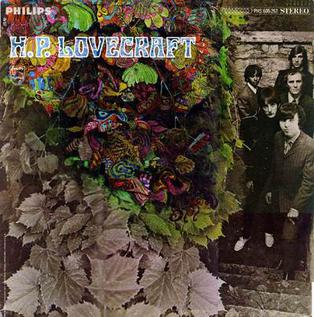
H. P. Lovecraft is the debut album by the American psychedelic rock band H. P. Lovecraft. It was released in October 1967 by Philips Records.

H. P. Lovecraft II is the second album by the American psychedelic rock band H. P. Lovecraft and was released in September 1968 on Philips Records. As with their debut LP, the album saw the band blending psychedelic and folk rock influences, albeit with a greater emphasis on psychedelia than on their first album. H. P. Lovecraft II failed to sell in sufficient quantities to reach the Billboard Top LPs chart or the UK Albums Chart, despite the band being a popular act on the U.S. psychedelic concert circuit. Legend has it that the album was the first major label release to have been recorded by musicians who were all under the influence of LSD.
"Farewell", also known as "Fare Thee Well", is a song by American singer-songwriter Bob Dylan. Dylan wrote the song in January 1963. He considered it for his third album, The Times They Are a-Changin', but only attempted a few takes during the album's first studio session. Dylan's earlier recordings of "Farewell" found their way onto various bootlegs, and a collection of demos that included the song was released in October 2010 on The Bootleg Series Vol. 9 – The Witmark Demos: 1962–1964.











